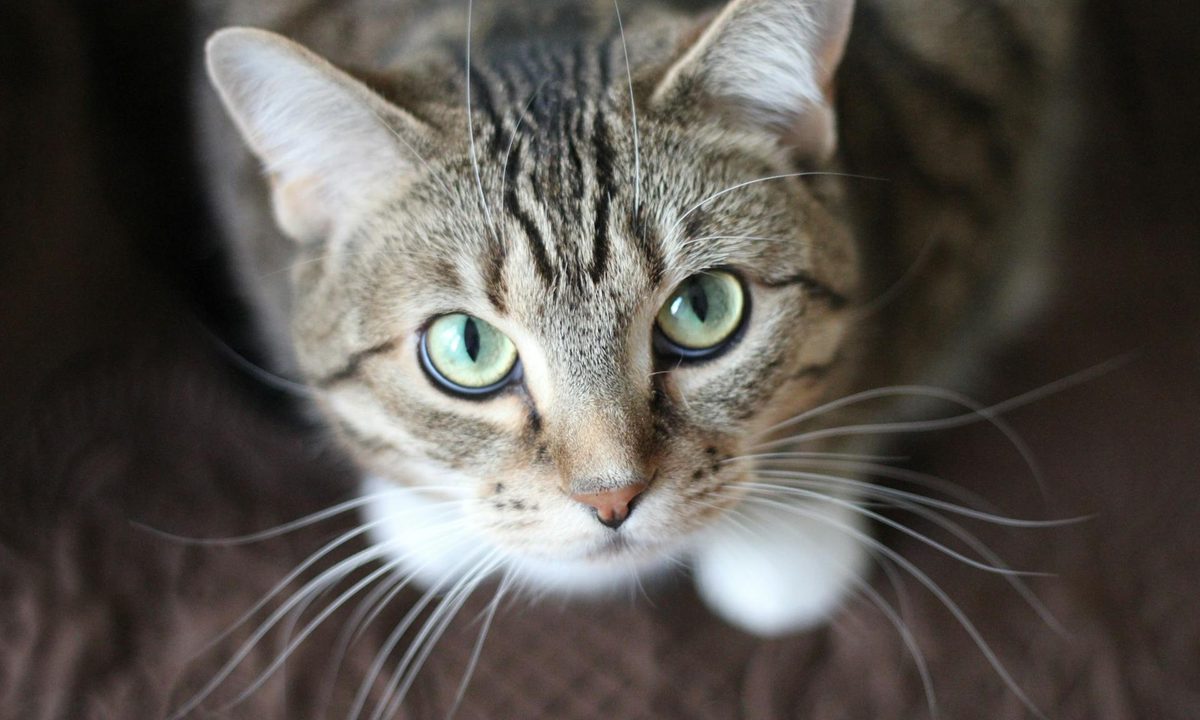You may have heard that cats adore milk. It’s cliche to “leave a saucer of milk” out for a kitty. The truth is that cats don’t need milk once they wean from their mother, a gradual process that concludes around eight weeks. After that, cats need food and water like their canine “friends.” In fact, cats can become lactose intolerant because they don’t need milk.
However, you might be interested in slipping your cat an occasional treat that doubles as your favorite food. Yogurt may fit that bill. But should cats eat yogurt? The answer isn’t black and white, and it’s individual to your cat. Indeed, yogurt is usually a dairy product, though some plant-based versions exist. However, dairy isn’t toxic to most cats. Not all kitties are lactose intolerant. Some can consume certain dairy products but not others. Let’s sort out the facts about cats and yogurt.
Should cats eat yogurt?
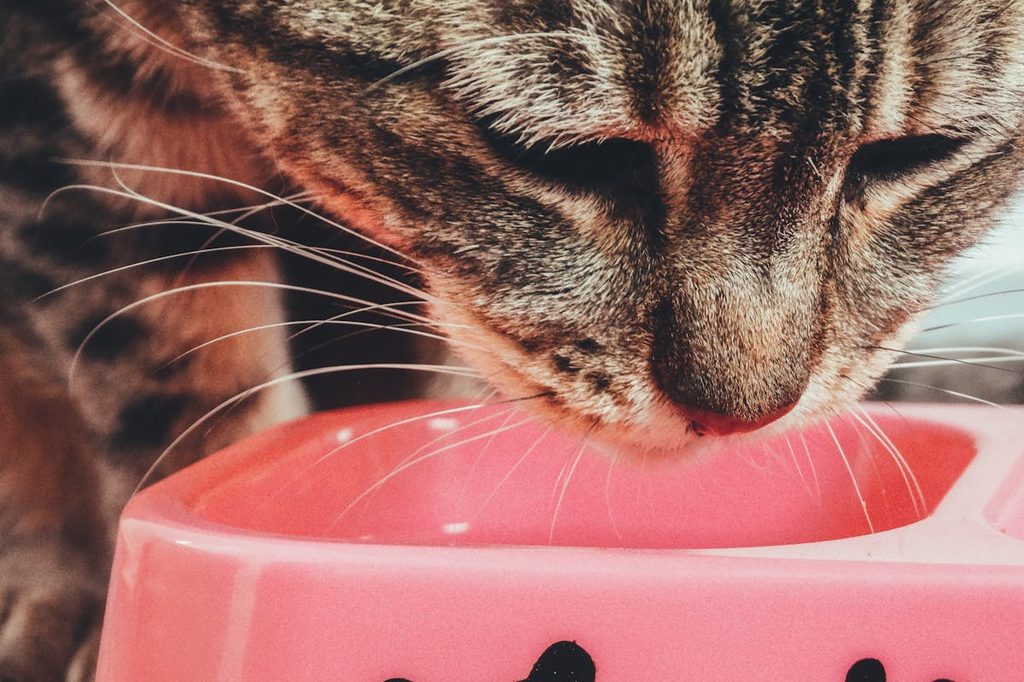
Yogurt isn’t inherently unsafe or toxic to cats like other foods, such as chocolate. Most cats can have a taste of plain, unsweetened yogurt unless they previously had a bad reaction to it. One risk of treating a cat with too much yogurt is unnecessary weight gain. However, you’ll want to avoid low-calorie versions, which may contain the artificial sweetener xylitol (check the ingredients list for toxins).
What about lactose intolerance in cats? Many cats don’t break down the enzyme lactase found in dairy products. However, the lactose in yogurt is often easier for their bodies to break down than what you’ll find in milk. Plus, the live bacteria in yogurts can help the process. Your cat may tolerate and even enjoy yogurt but have the opposite reaction to milk.
Yogurt also has some beneficial nutrients, like calcium, protein, and probiotics. That said, those aren’t necessary for your cat to thrive because they already get all the nutrients they need from their regular food. Your best bet is to talk to your cat’s vet before giving them any food, as they can provide the best advice based on your pet’s individual health history and needs.
What yogurts are safe for cats to eat?
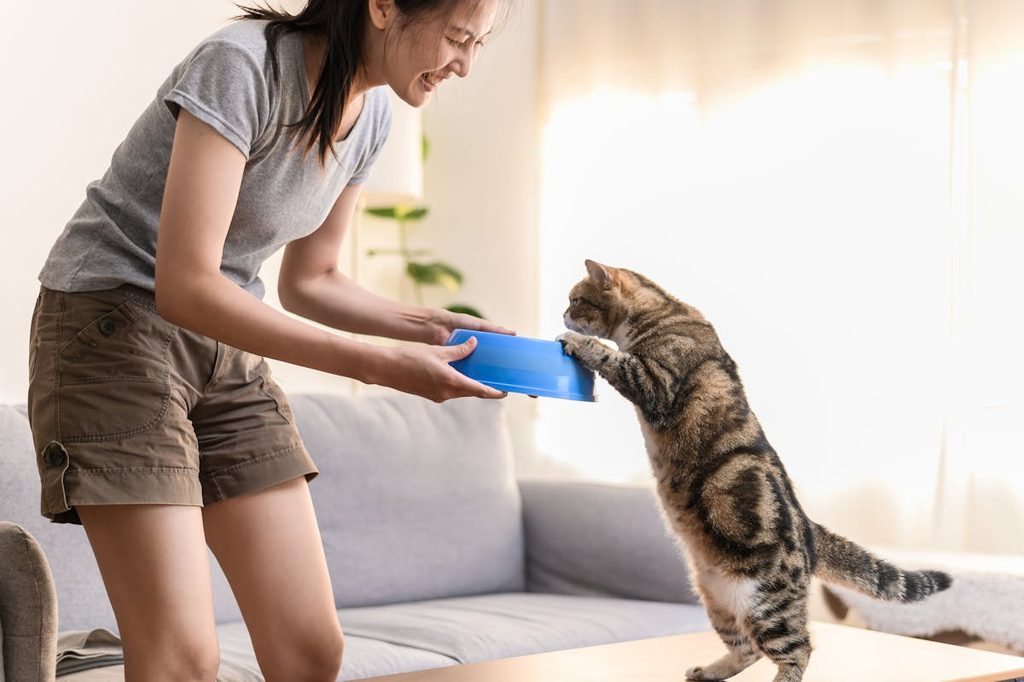
Plain, unsweetened yogurt without fruit on the bottom is the safest bet for most cats. Some felines shouldn’t have any yogurt, such as those that have previously experienced issues, such as GI discomfort after eating it. Your vet may also ask that you avoid giving your cat yogurt or other human foods if they need to shed a few pounds.
Certain yogurts — or add-ons/add-ins in yogurt — should also be avoided. These no-gos include:
- Xylitol (often found in no-sugar or low-calorie versions and toxic to cats)
- Grapes
- Raisins
- Chocolate products like chocolate chips
- Coconuts
- Macadamia nuts
Does yogurt stop diarrhea in cats?
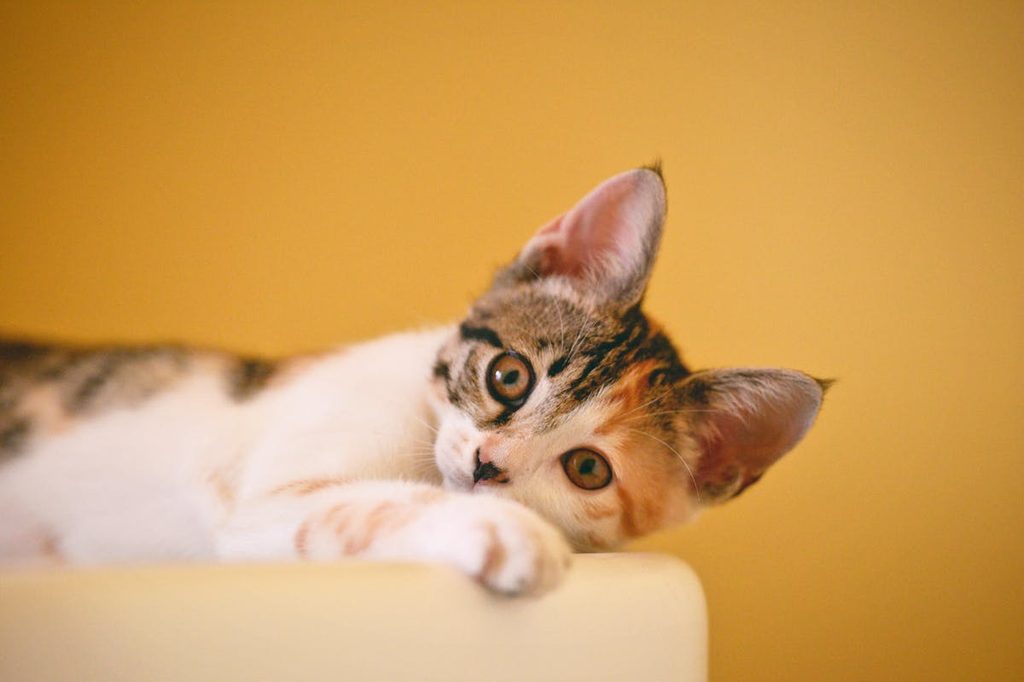
The probiotics in yogurt have earned it significant points with humans for their own gut health. However, we don’t know much about how the probiotics in yogurt affect cats other than it may make some yogurts more tolerable for them despite lactose intolerance. Your best bet is to rely on other remedies if your cat is experiencing diarrhea. Aside from being a bit gross (for you) and uncomfortable (for your cat), chronic or persistent diarrhea is a reason to call the vet. One potential side effect is dehydration. Signs your cat is unwell include diarrhea along with:
- Vomiting
- Decreased energy
- Pain
- Blood
Your vet can provide the best remedies, which likely won’t include yogurt. Medications, supplements, and special diets are a few potential options.
How much yogurt can I give my cat?
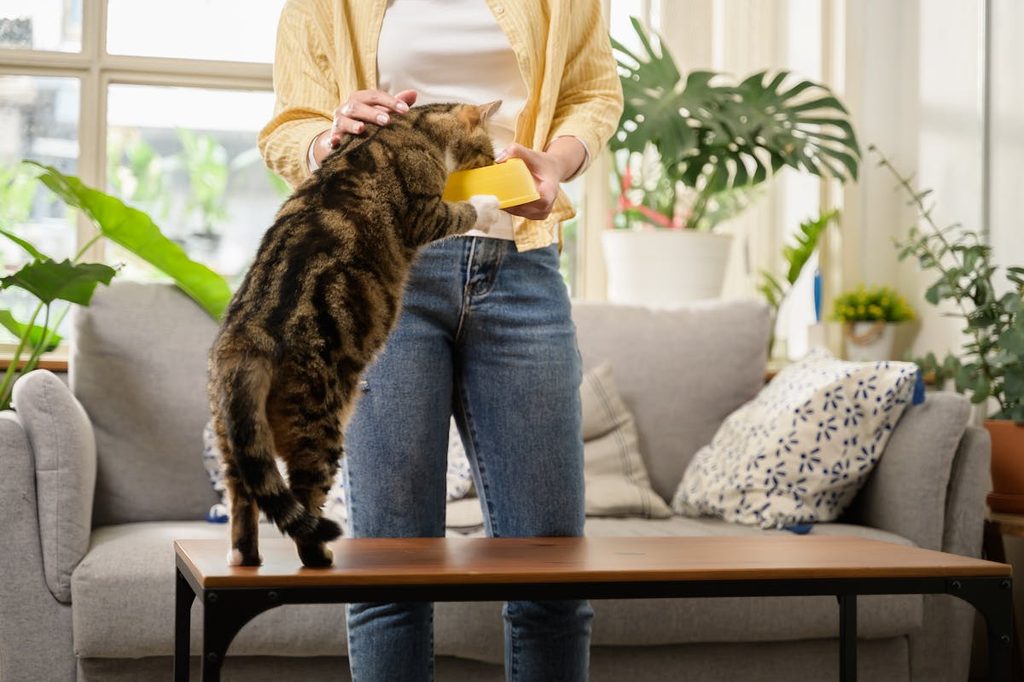
Your cat’s breed, size, health, and previous experiences with yogurt will determine how much to give them. A Maine Coon will be able to eat more than a 6-pound calico, barring any intolerance. Your best choice is to start with a tiny lick and monitor your cat for negative reactions. These reactions might include diarrhea and vomiting 8 to 12 hours after eating yogurt. Also, make sure your kitty continues to eat their regular food. About 90% of their daily calories should come from their standard food, and the remaining 10% can come from low-calorie treats.
Concluding thoughts
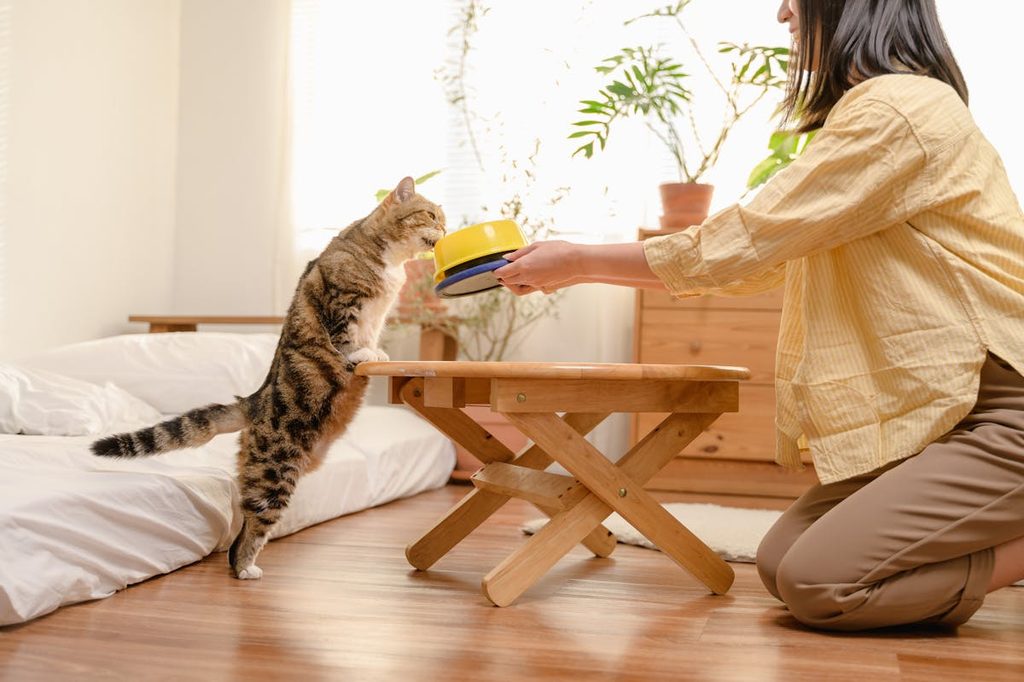
Yogurt isn’t unsafe for cats. However, not all kitties will tolerate yogurt. Many cats have lactose intolerance because their bodies cannot break down the lactose enzyme. That said, some cats can tolerate yogurt in small bits, and the food is often easier to break down than cow’s milk.
Stick to plain, unsweetened yogurts — low-calorie versions may have xylitol, which is toxic. Give your cat a lick, and see if you notice signs, like GI discomfort, within 8 to 12 hours. Be sure to give kitty a diet of 90% regular cat food and 10% treats. That will ensure they get all the nutrients they need to thrive and lower their risk of becoming overweight.
